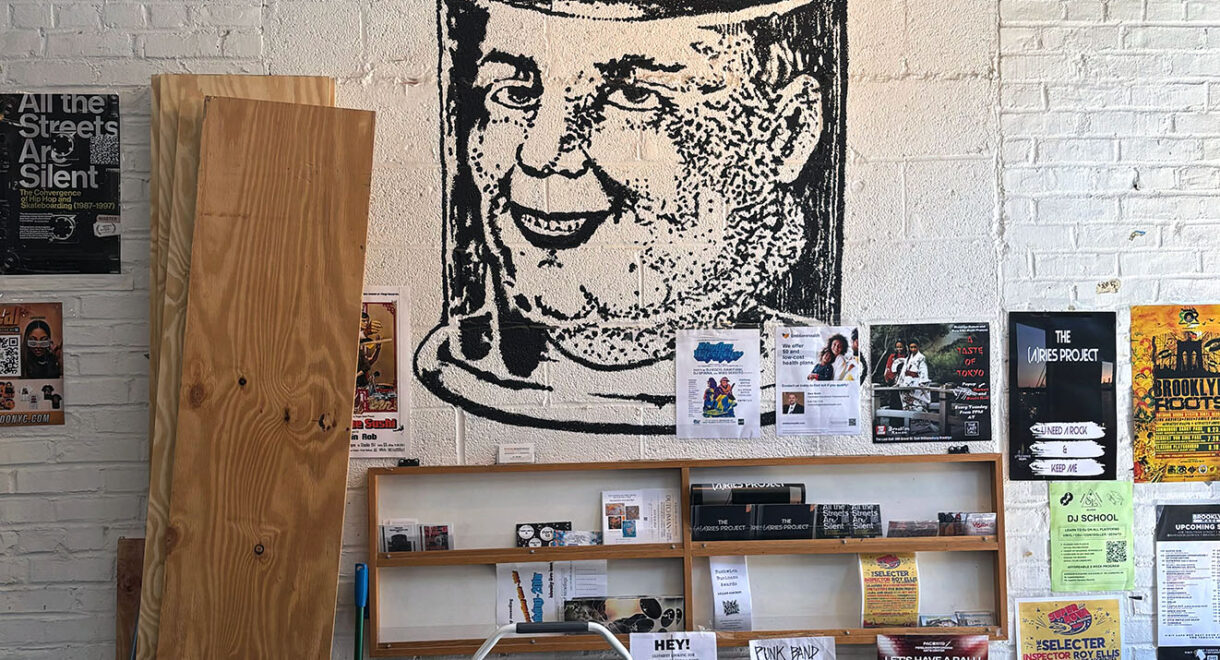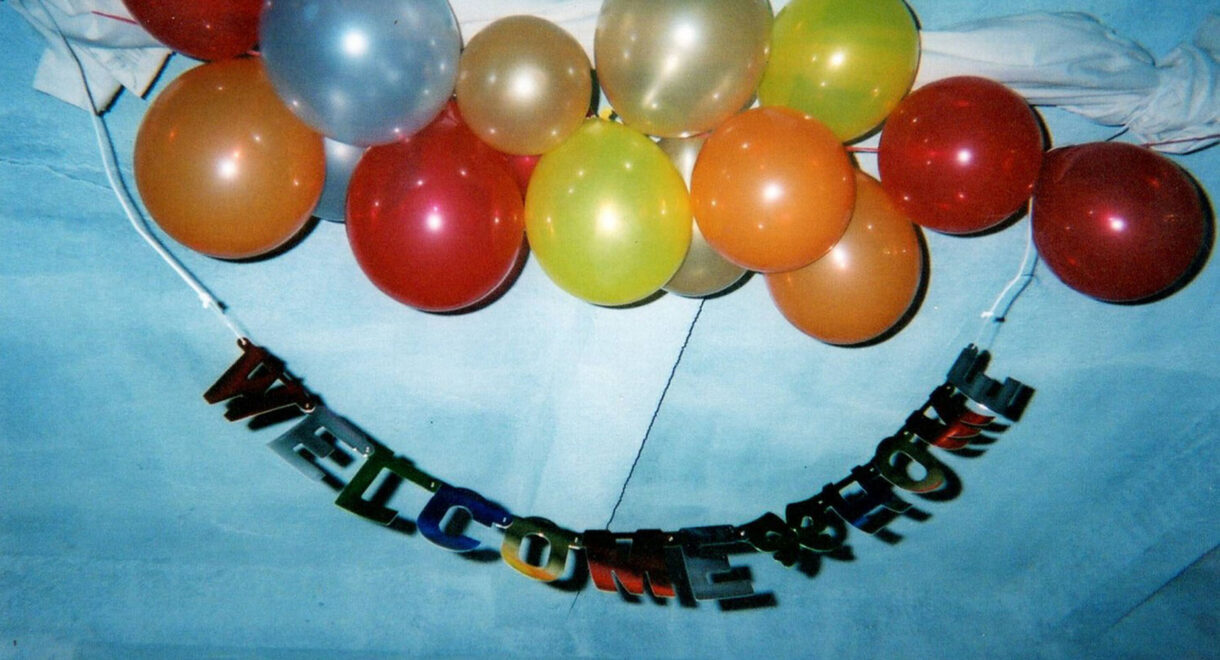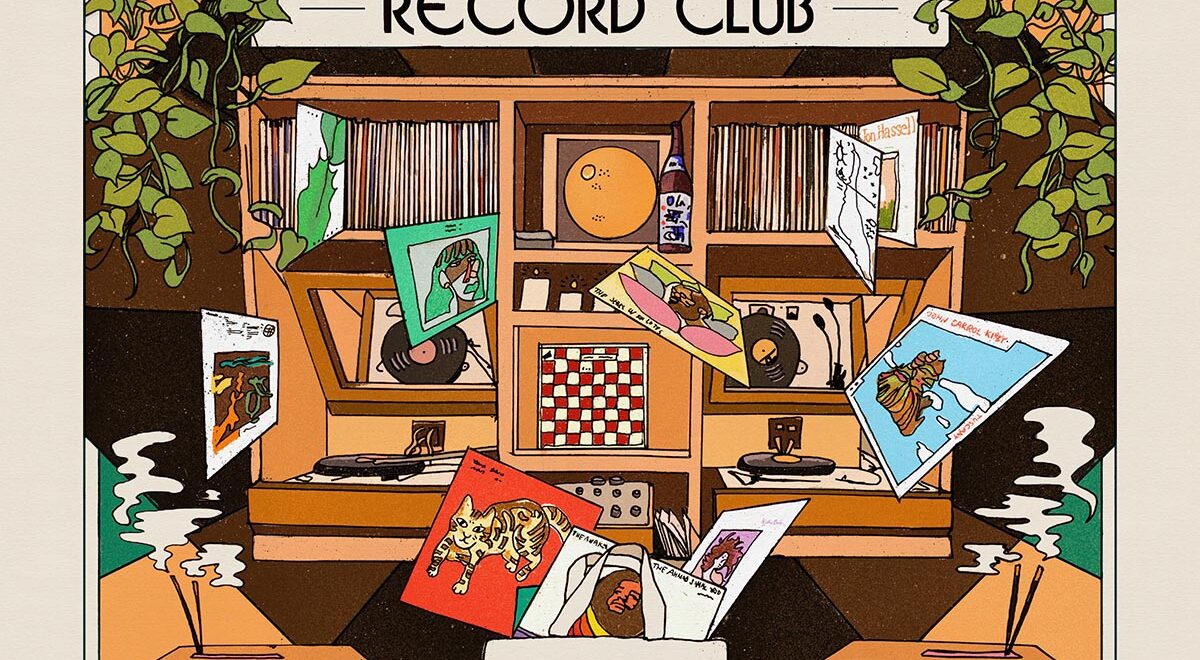Rachel Opert speaks to Travis Klein, owner of beloved Bushwick record store Human Head. Human Head has been a staple for many for the past ten years. Tucked […]
The Discogs Interview: A Rare Look Inside the Beloved Record Brand
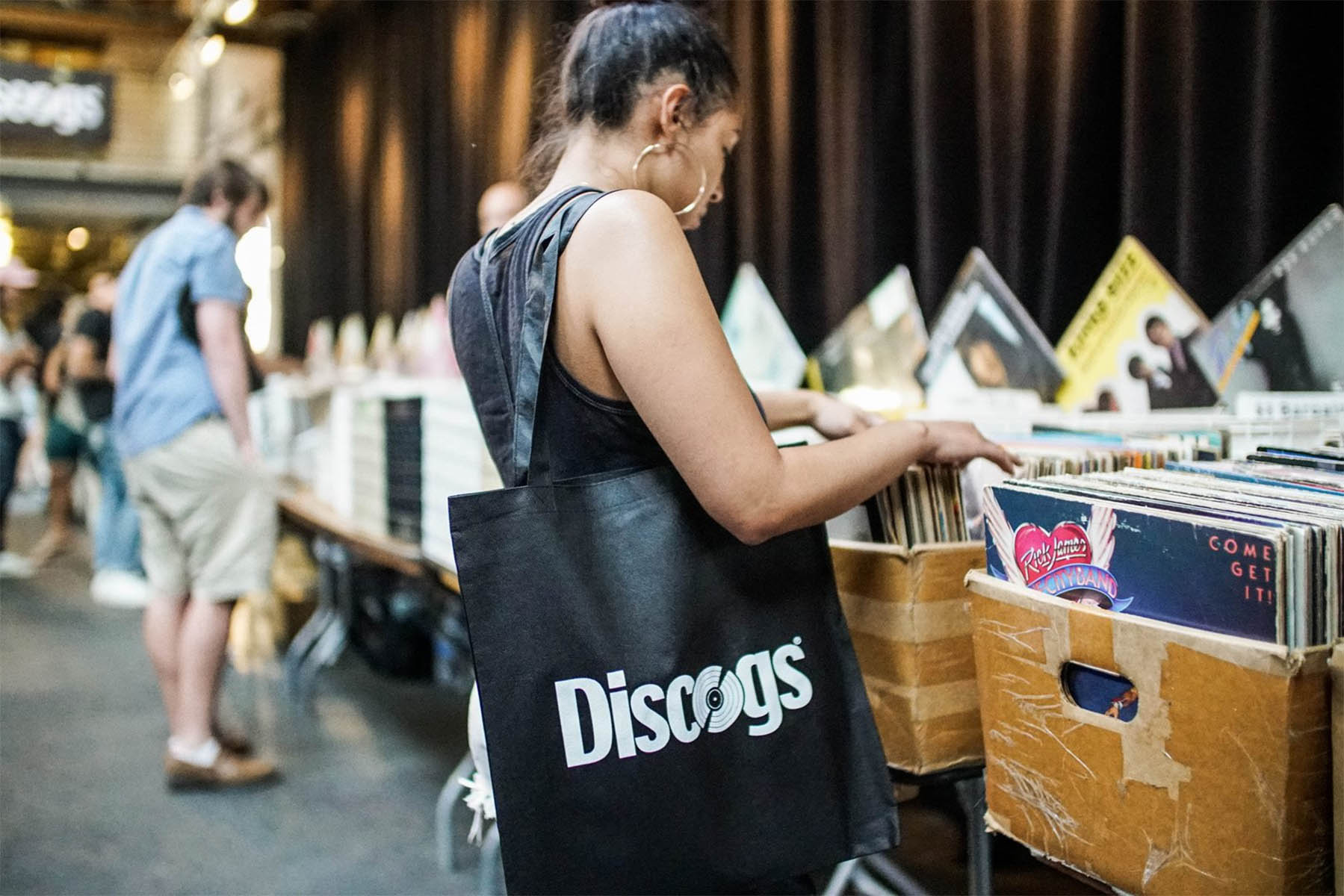
Tana Yonas speaks to Discogs’ Aub Driver and Christopher Masagatani on the company’s history and how they are adapting amid a global pandemic.
The vinyl community shifted with the rest of the world in 2020 when record stores shuttered to protect the public from an undiscriminating virus. They had to go somewhere to stay afloat, and many record shops and buyers moved to Discogs. This rare look inside one of the most beloved brands for record lovers features two voices from their HQ in Portland.
We interviewed Aub Driver, who acts as the direct line into the inner workings of Discogs and the public relations lead for the company. He’s one of the most visible employees and is often the face of the company at public appearances. Aub was joined by his colleague Christopher Masagatani, the regional lead for North and South America. Christopher advocates and provides support for sellers on the platform, whether it’s a large-volume seller with a record shop or a hobbyist seller who works out of their basement. He also supports the growth of stores and the adoption of any new features or initiatives.
Below, we explore what it was like for them to suddenly become a digital shelter for record lovers globally, how the rise of “the selector” is changing the face of the vinyl community, and their plans for being fervent drivers of growing the popularity of recorded music as a physical object.
Tana Yonas: I didn’t know the extent Discogs participated in events IRL until last year when you were in Oakland for Fault Radio’s epic vinyl fair in 2019. It was really exciting to see your logo there, and to see your brand playing such an important role in bringing vinyl lovers out like I had never seen before in the Bay Area. Has it always been important to the brand to have a stake in cultivating the vinyl collecting communities in real life, or was the focus building your culture online via your platform?
Christopher Masagatani: It’s definitely a huge part of what we do. In regard to the community, it’s a big part of the DNA to support not just sellers or buyers, but also the old vinyl community at large. And that involves everything from record fairs to content pieces to partnerships with other community hubs, and talking with people like yourself. So I would say that it’s essential to go to conferences, really engage with the community, and be there on the ground with them. And that’s really what differentiates us from companies like an eBay or an Amazon. We’re talking to sellers, we’re talking to buyers, we’re advocating on their behalf and that’s a real big part of what we do.

TY: Was Discogs more interested in cultivating the online community domestically at first, or have you always been internationally minded? Was going global always the goal for Discogs?
Aub Driver: I’ll let Christopher speak to the in-person and record fair elements, but I can tell you how we started. Our founder, who is still the CEO 20 years later, came from Intel and wanted to build a site that would catalogue his own record collection. He was an electronic DJ, and had a lot of 12 inches and records but didn’t have a way to really know what he had.
Once he built it, he opened it up to an open source global community online. A lot of different developers that were out there loved what he was doing, and bought into the platform he had created. It launched in 2000 and grew so much just in five years. Over the past 20 years, we’ve grown substantially to over 13 million releases in the database, but it still is really a passion project for us.
CM: The timing of the launch was huge. The way our founder, Kevin led with data first really married well with the growth of Google and other search engines — and the marriage of our data with the explosiveness all over the world with Google. Because it was internet-based, I think we always led with a sense of openness and sort of worldwide community in mind. And the rise of Google I think was a big part of the success because we’re more than just a record marketplace. We’re really passionate about the data and that’s what makes us different.
When you dig into the data — i.e. how many people are joining the community not just in the US but around the world — it’s a lot. For me, it’s engaging with those users in a meaningful way and really keeping them as a part of a community.
Christopher Masagatani
TY: Can you elaborate on why data is so important ?
AD: The database is the backbone of Discogs. And when I say “the database”, I mean the 13 million listings that we host. That’s really what the mission of this company is, to get every physical piece of recorded music into our database. That’s different than the Amazon model that wants to sell as many records as possible, that’s more about volume. The marketplace is a by-product of the data, not vice versa, which I think really speaks to why we are still here today, competing against other larger companies.
TY: I’m a relatively new vinyl collector. I’ve been collecting for about three years and in the beginning it was very intimidating going into a record shop, and sometimes it still is even though now I know what I’m doing. Though shopping online through platforms like Discogs really allowed me to explore more easily, and made it far more accessible. It also seems like recently there’s a huge influx of people who have a new interest in vinyl. It’s in vogue again and growing. Have you had to change how you’re relating to this influx of novice collectors?
CM: Yeah. I agree with you on all points. I mean it’s a pop culture phenomenon that we’re experiencing right now with vinyl. But I will say that I’ll give you an anecdotal story of a record fair that I went to in Montreal before covid. It’s called 24 Hours of Vinyl, and it was held in a public space. The whole point was to have someone who’s spinning vinyl for 24 hours, and then attached to that was a vinyl fair that would last throughout the whole day. And it was so cool to see the different kinds of music lovers that came through during the different times of the day.

In the morning, there were a lot of families with parents carrying kids while digging. After that came the real hardcore kind of hobbyist-collector who stayed there for a long time, you know, the choosiest. Then you get to happy hour, and the raver types came out in crowds and it was a party. It was an amazing thing to watch, you know, the demographics changed so much. So I guess the point is we really stay true to our original mission, which is providing the platform for everyone. And I think because we started with that egalitarian approach, we don’t really have to adjust our brand. And we’ll always stay a platform for everyone.
AD: Yeah, and that we just went through a very tumultuous year in 2020. One of our main focal points, which has been in the cooker for quite some time, was to update our shipping policies. That was really to benefit new users. We wanted to simplify buying for those who were coming to the site and trying to invest in new things for their burgeoning collections. We wanted to help people build out their collections by simplifying the process of obtaining records.
TY: A lot of my personal collection comes from international sellers because the music I’m interested in collecting comes from traditions from all over the world. I’m sure you’ve noticed as well, because of COVID restrictions, shipping across borders was really affected. It was really difficult to obtain records, for instance in Japan, because the government wasn’t allowing international shipments via regular posts for about about three months. Was that hard for you to have to standby when there are legal and bureaucratic changes that affect your platform? Especially with Brexit making things a lot more expensive and complicated to ship to and from England? How do you adjust?
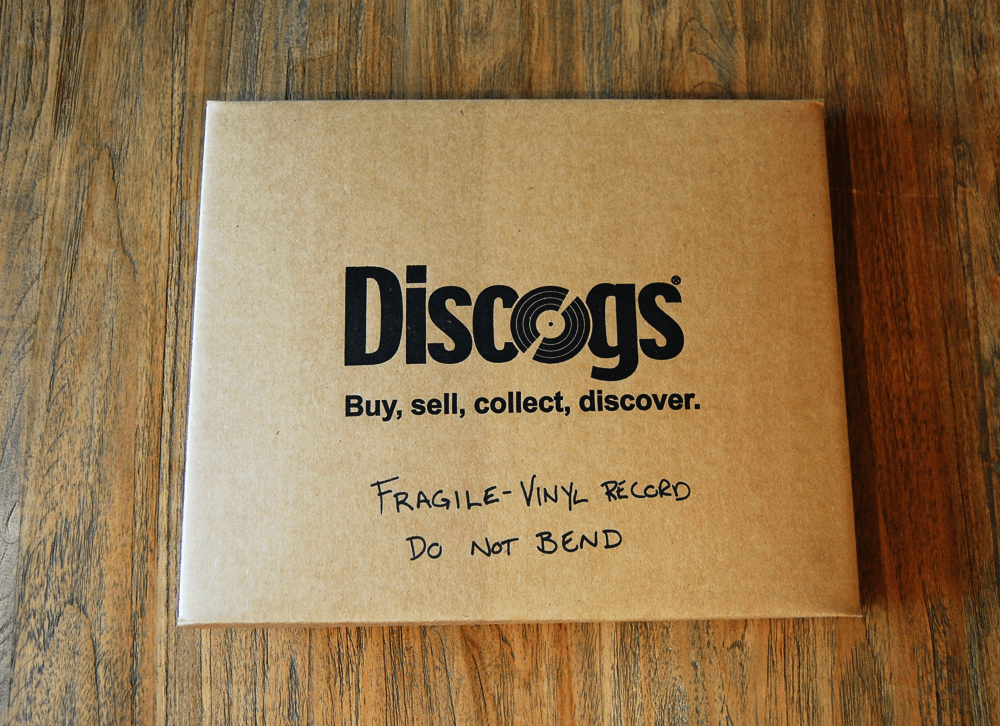
AD: This is important for this conversation and there are two sides to it, right? There’s this vinyl culture and music side of things that we are very much on the pulse of and can speak to, but then there’s another side of the coin, which is an internet-based marketplace. And on the tech side of things, we are constantly monitoring laws across the world, tax laws, import laws. Postal delays we spent a lot of time on because we are a global entity. So we’re constantly adapting to those changes like the UK VAT issue.
I’m surprised you brought it up, because it’s something that I’ve dealt with and brought up five times today. Sellers are just so concerned, because the UK is a huge market for us. So yeah, it’s confusing and it’s not the most fun subject, though it’s something that we have a lot of minds working on, all the way up to the top of the company. And it’s our mission to share the best way to move forward with our community.
CM: Dealing with COVID messed up a lot of different things and one of those things was how quickly things are delivered. Multiple times over last year I waited a month or two to get something from abroad. At this point, we can only control so much. It’s really reliant upon the seller and the buyer relationship and being very transparent.
That means making sure that the tracking numbers are always there and that everybody’s aware of what’s going on. Now that we’ve implemented these shipping policies, we have complete transparency where your order is between a seller and a buyer anywhere in the world. We are always working towards doing things better.
I see a lot of older shop owners that were reluctant to have an online channel. They finally had the time for the learning curve to get online, because that’s how they were going to survive.
AUB DRIVER
TY: Obviously at the same time, a lot of physical record shops were either temporarily closed or permanently closed because of health restrictions, so Discogs has been a refuge for many of them. That’s especially true because your platform is ready-made and is configured to make it very easy for record stores to add their inventory. How did you handle this? Did you see an influx of sellers coming online for the first time? And if so, was it difficult to manage that influx?
AD: You know, there are a lot of new sellers coming on right now. But there’s many different types of sellers, right? I would say, since the pandemic from a store perspective, I see a lot of older shop owners that were reluctant to have an online channel. They finally had the time for the learning curve to get online, because that’s how they were going to survive. We’re talking about hundreds of stores that have since adopted this as their online selling platform as a result of not having people in their stores. The younger, more savvy business owners were already on Discogs.
We were able to manage the immense amount of traffic that we’ve seen since the start of the pandemic. And to your point about Discogs being a refuge, that isn’t lost on us. We’ve done multiple campaigns to support our record stores. I would say we treat our users the same, but our record shops represent a particularly unique and valuable part of our community that we try to support in numerous ways. Whether that’s our fee refund program we did at the beginning of the pandemic, or the seller spotlights we do on our very powerful social channels.
We also have a sub-brand called Vinyl Hub, where we list every physical record store in the world. So when you go to a particular city, you can go to Vinyl Hub and have a ready made list of vinyl stores to shop at. You can even peruse their inventory before you go. Like I mentioned, a lot of that growth was fueled by stores that didn’t have an online presence before.
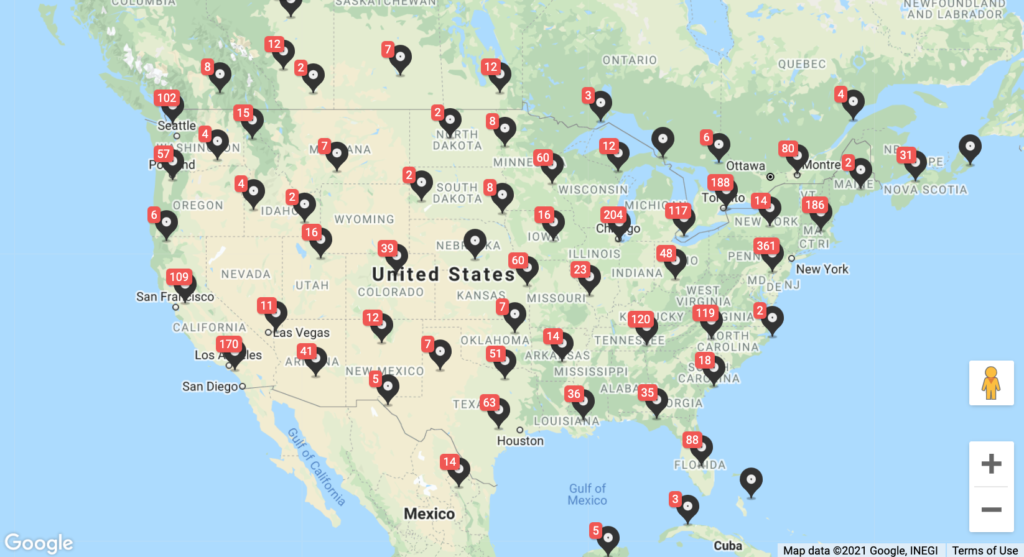
TY: Last year saw a decline in record sales in the US but according to the RIAA, vinyl sales weren’t nearly as affected as CD sales. What about the medium do you think is keeping listeners engaged?
AD: There’s obviously a lot more people and a lot more data that we have now than we did six years ago, and that’s all a part of the movement to protect the physical medium. I’ve thought a lot about that question about why physical music and vinyl is keeping people’s interest. What is it that’s fueling that growth? And that’s a question that we talk a lot about internally.
I don’t know that there’s a silver-bullet answer, but I think that, and this is me personally, it’s the rise of streaming and digital life in general. The pendulum always swings, right? I think where the pendulum is now, it has people yearning for an honest experience. You can have that experience with a piece of vinyl, and often you have a nice piece of art that you can engage with too.
You don’t ever have to look at a screen, interface with some kind of algorithm, or any 1s and 0s (referring to the binary code used in software engineering). You know what I mean? I think that’s a huge part of the growth because people just want to rest. You go from one screen at work to another at home then to another screen in bed. It’s just too much. It’s kind of like a good book or a conversation or something — it’s something real. It’s like escaping from the digital oppression that I think everybody is going through right now.
CDs aren’t nearly as popular because we’ve gone to streaming. And the fact is, they don’t make cars with CD players anymore. There’s no need. There is also a safety to owning that piece of music. I’ve heard many stories of people who had an album or movie they love disappear without warning on platforms like Apple, Spotify, or Amazon because the original rights holder doesn’t want it there anymore.
TY: I loved that explanation of not having to look at a screen, and I couldn’t help but think about the experience of a hi-fi bar. I remember in a previous conversation that one of you had said they had a friend who was opening one up in London, so it’s cool you’ve had exposure to these special spaces for audiophiles. Are places like In Sheep’s Clothing, that are popping up all over the world, affecting the culture of Discogs?
CM: I think that’s more of a symptom than a driver. But that’s kind of a hard question to ask when I haven’t been to a bar for a year [laughs]. But I loved going to them in Japan. I really love how it adds a refinement to the hobby.
TY: In the case of the hi-fi bar Brilliant Corners in London, they’ve created a platform that’s contributed to DJs being called “selectors” like in the case of Donna Leake. She’s been hosted on prestigious stages like Dekmantel and Boiler Room, and her sets are not about playing dance tracks or even beat matching. Her popularity is more about her incredible selection of mostly obscure jazz tracks, and she mixes in the traditional Hi-fi/jazz bar style where you let a track play out. I know even for me she’s really affected how I collect music because now I can be a lot more weird with what I play. Have you seen that effect particularly?
CM: That got bought up recently, one of our great friends Dor Wand communicated something to me this year that I’ve really taken to heart because I am in your same boat too. And it’s the rise of the selector, right? It’s not a new word, it’s an old vinyl term from Jamaica, where you’d hear a good hearted heckler yelling “ Turn on the turntable selector!” It’s a term that’s been around.
But I think it’s taken on a new meaning. It’s really synonymous with taking special care with the story you’re telling with what you play. I would say I like to play as a selector myself. Every other Friday we spin music as a company, and I’ll start with a reggae tune, then I’ll switch into a Superman themed track to allow me to go into this remix that has the same sample in it. I might go from some dance music to some Hawaiian folk stuff, because I don’t feel bound to a BPM like your average DJ. I want to tell a cinematic story, and I think that the rise of the selector mentality is a result of more people being involved in collecting vinyl.
TY: I would love to hear from both of you how you envision or would like to see Discogs evolve, especially once we have covid behind us. A lot of us are in our homes, listening to music in small groups or by ourselves. Will everyone go back to record fairs and be involved as an international community in physical reality again?
Our founder, Kevin, is one of my heroes. He’s had many opportunities to sell out and hasn’t. That really speaks volumes to his character, and how much he values his community. We use the word community a lot!
CHRISTOPHER MASAGATANI
CM: Well, we have a company vision that we’re all working towards. Then I think we all have our own personal thoughts of what we’d love to see. It’s still so interesting to see how much growth the community is experiencing, and the growth month over month is exponential. And I don’t know if I can divulge the numbers, but let me tell you, they’re intimidating. When you dig into the data — i.e. how many people are joining the community not just in the US but around the world — it’s a lot. For me, it’s engaging with those users in a meaningful way and really keeping them as a part of a community.
I think it is going to be an interesting evolution. And for me, personally, I just can’t wait to go to record fairs and other countries and travel again because before the pandemic we had plans to go to fairs in Mexico City, Brazil and all over Europe. I just can’t wait to get back to reality and away from a screen.
AD: For me, anything having to do with physical music is really our intended goal. So we want to work with everyone that’s out there, and to work with a bunch of different partners and businesses to improve the experience for everyone. We are, and have always been, open source. Another huge part of what we do is allowing people to tap into our data and improve upon it. We’ve seen various developers create fascinating things with our data all over the internet. So I think we can only go up from here.
CM: I’ll also say something that’s also important to me, and I can’t speak for leadership on this. But I know another huge differentiator for Discogs, and why we are successful as a community, is the fact that we’re independent. We’re not a corporate entity and not owned by the likes of eBay or Amazon. For me personally, I want that to always be the case because it really gives us a moral high ground when it comes to a lot of issues involving the community. Our founder, Kevin, is one of my heroes. He’s had many opportunities to sell out and hasn’t. That really speaks volumes to his character, and how much he values his community. We use the word community a lot!
AD: Final point on that is we are in fact a very independent company. We only have about 100 employees. People think we’re a massive entity. We’ve only got 70 people in the states and 30 people abroad.




